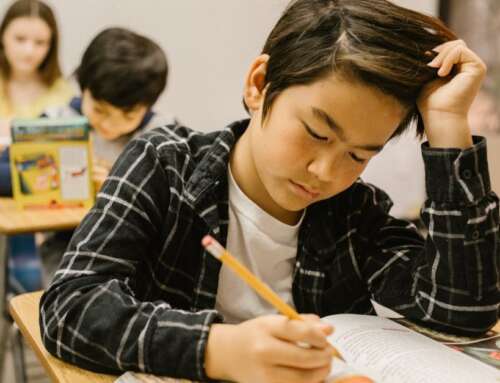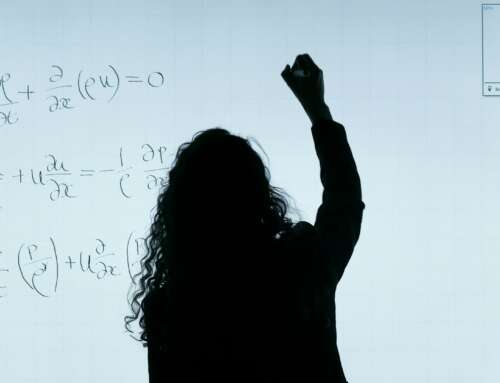With gifted young people there are two aims:
– To help them to make the most of their main learning strength; and
– To help them to use that learning strength to increase their performance in other areas.
Young people & children who have been identified as especially gifted benefit greatly from knowing their learning strengths.
Some gifted kids oscillate between feeling anxious, perfectionistic and overwhelmed to feeling underwhelmed & that school is an endless experience of tedium. Others have a mismatch between their intellectual capacities & their ability to process their emotions when life is challenging.
Perfectionism
A lot of gifted kids that I see in my clinical psychology practice are perfectionists. Perfectionism can either work for them or against them. When it works for them, they stick with problems until that are solved & find ingenious & creative solutions. When it works against them, they ‘melt down’ if they don’t succeed the first time they try something and avoid areas where they might ‘fail’.
Knowing their learning strengths and having a personalised learning success plan helps them to understand that they, like everyone else, have some areas where they perform at high levels but also have some areas that are more challenging.
Academic Self- efficacy
Knowing your learning strengths increases academic self-efficacy. This is the level of self-belief that you can do well. Gifted kids often have high self-belief in the areas they find easy but are incredibly self-denigrating about their capacity in areas they find challenging.
Utilising your learning strength areas to lift your success in other areas is something most kids don’t consider without some prompting. This may be especially the case when success has felt relatively effortless.
Spatial Reasoning
Spatial reasoning is the ability to solve problems, connect ideas and recall information using pictures and symbols.
A learning strength in this area allows people to deal with abstract concepts in symbolic form and is predictive of their ability to deal with advanced concepts in mathematics & number smarts.
Perceptual- Motor Skills
Some of these kids have high levels of performance in using their senses and their bodies to learn. Skilled dancers, gymnasts, athletes, artists and musicians often have learning strengths in this area. Being adept in perceptual-motor skills can lead some to under-value other ways they can learn and generally don’t see how to utilize their existing skills to promote success in areas.
Concentration and memory
Sometimes a learning strength in concentration & memory can be confused with laser-like focus or speed of recall. This might be a good skill for game shows but doesn’t always predict success in life. Quite a few gifted students are slow & methodical in their processing of information. This means in the rapid-fire life of school they can be seen as ponderous and can be over-looked. Timed-assessments can be disastrous to their academic self-efficacy.
Their more analytical & meticulous processing allows them to give deeper & thoughtful responses. If you ask them to tell you about a concept, and you are able to wait, a rich web of connected thoughts and memories tumble out.
Planning and sequencing
When success comes easily to you, you may not see the need for planning. This is a trap that waits for gifted students. There comes a time when, no matter how easy you find learning in an area to be, that planning an approach to success will be of benefit.
Developing a learning strength in planning and sequencing is advantageous in school but eventually in all aspects of life.
Thinking and logic
Gifted kids often run on their own timelines. While often very systematic & logical, school may not always have the patience to wait for their intricacy of their thinking.
Even debating competitions often reward a brevity of response & the ability to respond rapidly. While some gifted kids can certainly do this, others will be left floundering.
Gifted children tend to look for all possible answers or solutions before settling for a best answer while others will choose the first one that ‘will do.’
Finding an area, often outside of school, where these kids can develop this learning strength is important. Allowing them time to richly investigate, deliberate over & develop ideas about an area of their interest is essential.
People smarts
This is a critical learning strength to develop. While they would like to have some good friends, many gifted kids prefer solo projects and self-instruction over small group work. In terms of friendships, some go for quality rather than quantity. Some even try to tone down their smarts to gain acceptance by their friends.
No matter how gifted they may be, developing the people smarts to deal with different types of people as well as managing their own feelings and frustrations is important. The development of people smarts as a learning strength is a major determinant of their level of success.
Helping them to develop the skills of conversational curiosity will benefit them long-term. Some gifted kids are able to tell people a lot of information about things they know but are less skilful in encouraging others to share their ideas and knowledge.
Studying the lives of eminent people will help them to see everyone has set backs on their way towards great achievements.
Language and word smarts
This learning strength involves the ability to reason, solve problems & recall information using verbal methods such as printed and spoken words.
Learning strengths in language and words is more likely than spatial reasoning to predict current success in a school system. However the same may not always be true in life.
Developing knowledge about how to present information visually, symbolically and with impact is a useful link between these two areas. Video creation and editing, game design, creating infographics and puppetry are some activities that promote this link.
Number smarts
Gifted young people with a learning strength in number smarts are often clear & logical thinkers who can sequence tasks well. This strongly overlaps with spatial reasoning.
For some we need to help them to shift from the abstract to the practical. Seeing the applications of numbers to real world problems is a good starting point.
In summary, gifted kids can have a shaky sense of the self-efficacy in areas they find challenging & knowing their learning strengths and how to apply them broadly advantages them in terms of life success.
Download the PDF
More information:
Andrew’s website
www.mylearningstrengths.com has helped over 11,000 young people in the past year discover their learning strengths.
On Facebook:
andrewfullerpsychologist
Learning Strengths
Books for Parents
Unlocking Your Child’s Genius
Tricky Behaviours
Book for Teachers
Neurodevelopmental Differentiation- Optimising Brain Systems To Maximise Learning (Hawker-Brownlow).







Leave A Comment